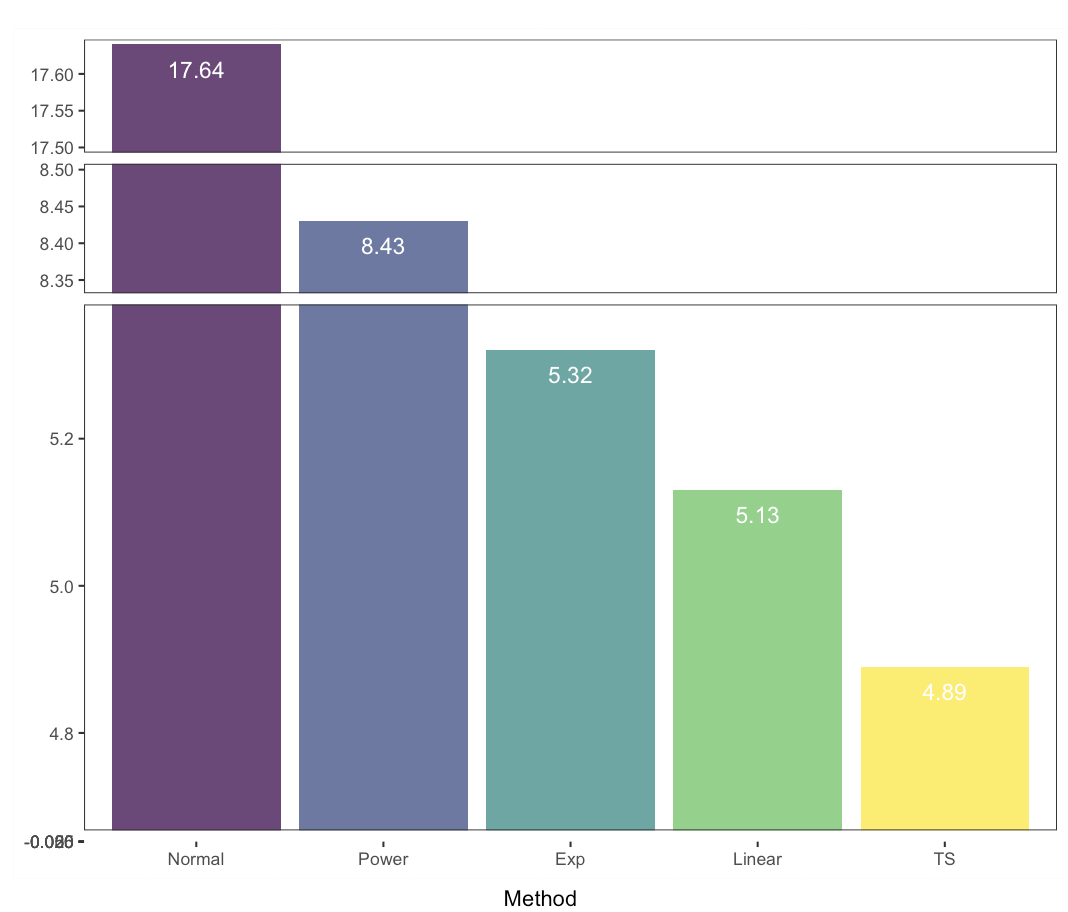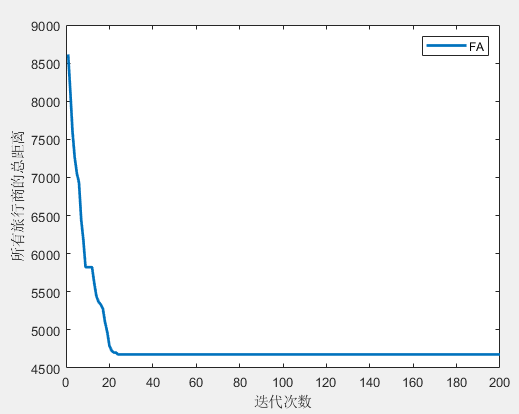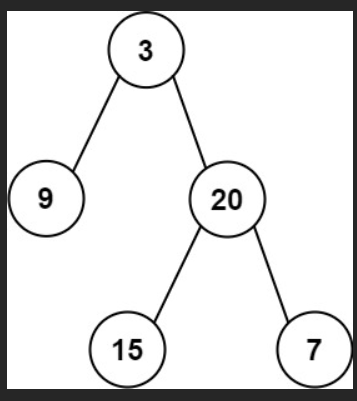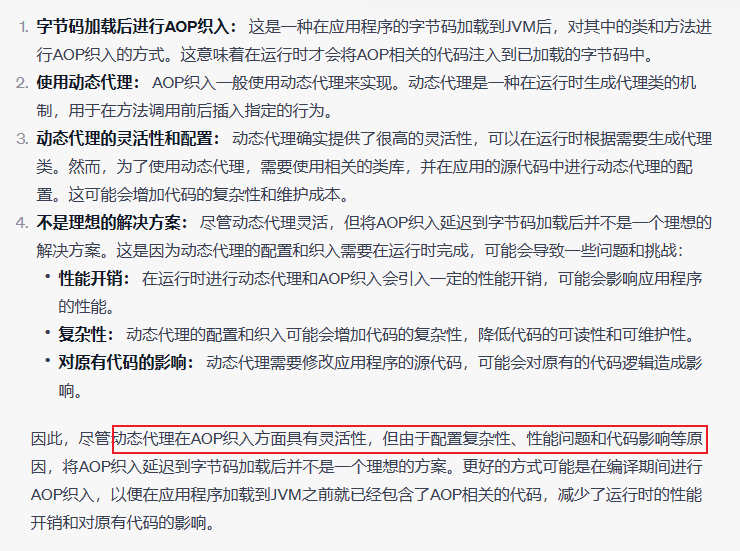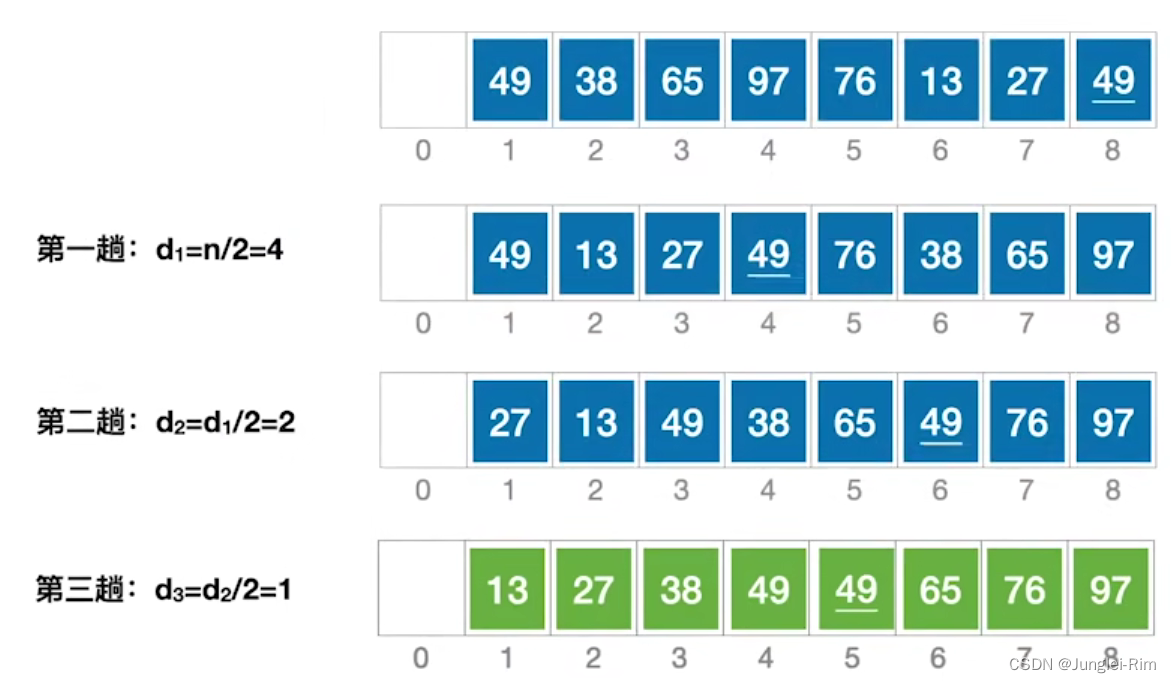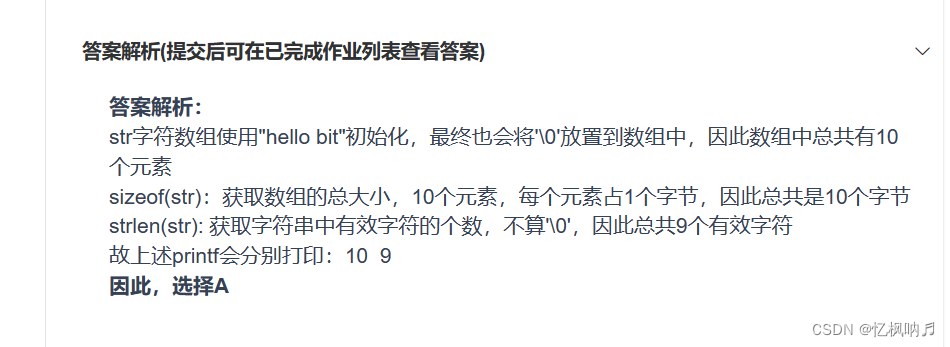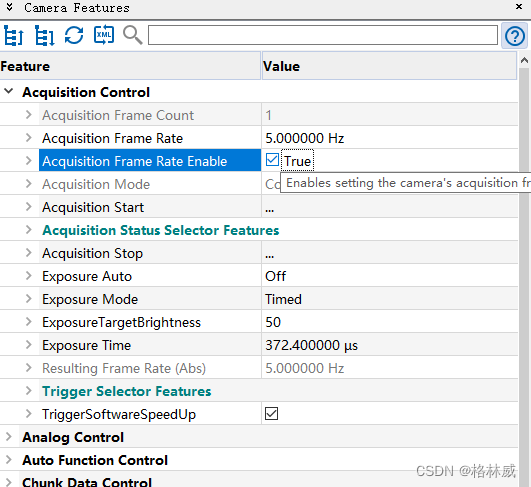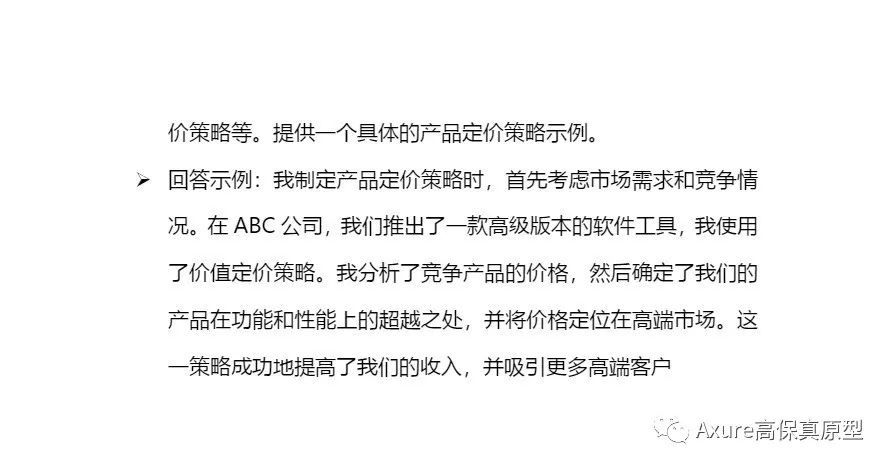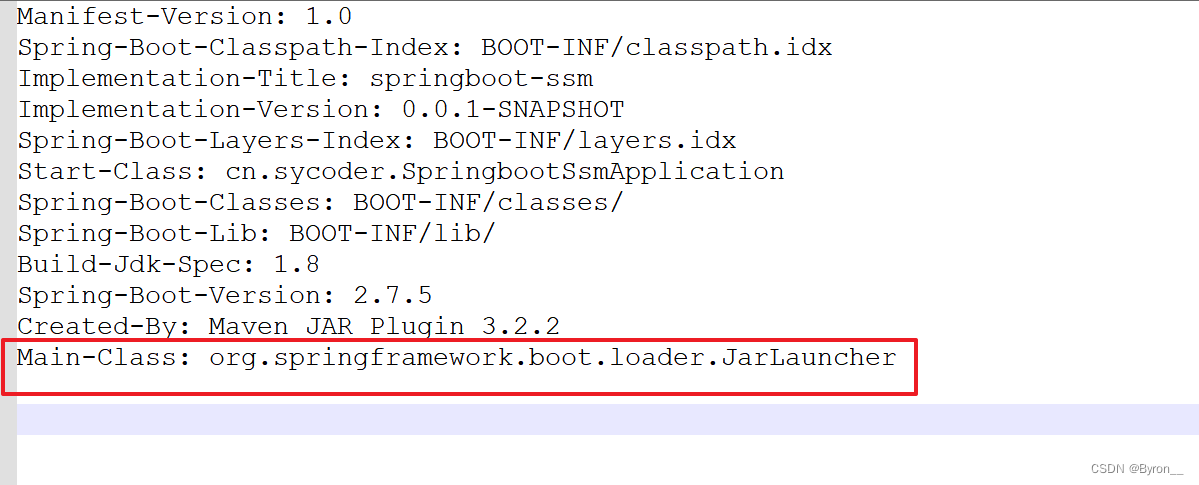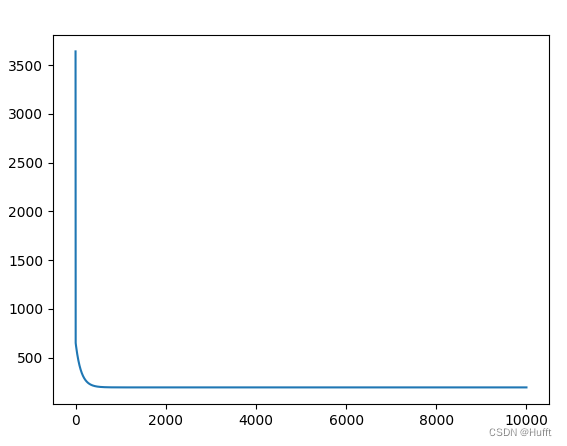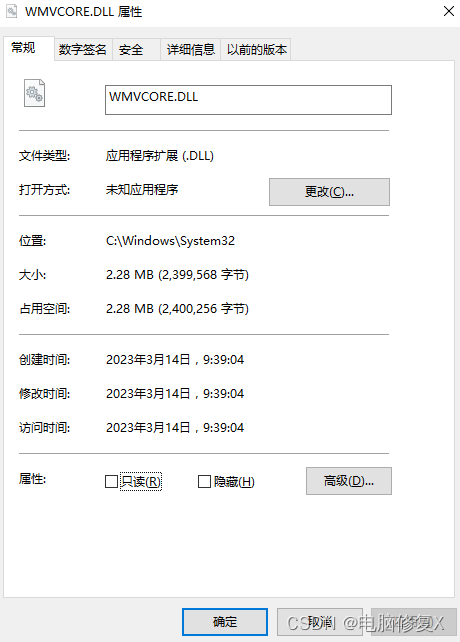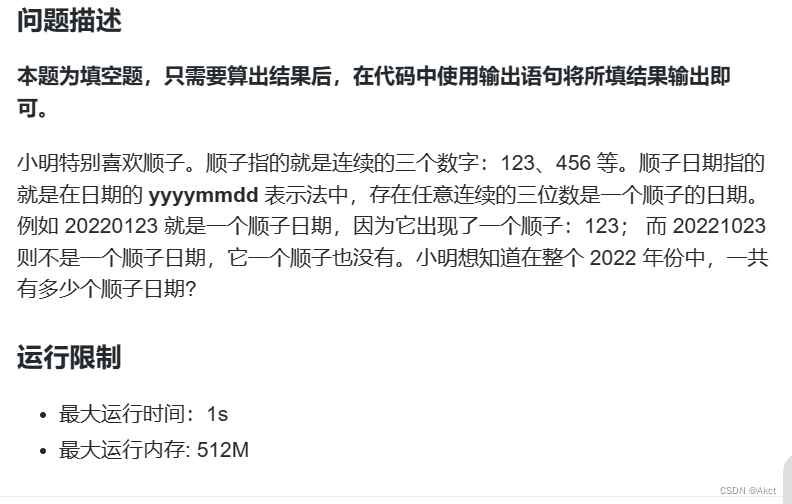1.概述
如下图所示,Linux内核中USB主机体系结构由五部分组成,分别为Application Software、USB Class Driver、USB Core(USB Driver)、USB Host Controller Driver、USB Host Controller。应用程序处于用户空间,通过系统调用访问Class Driver,从而间接的访问USB设备,如主机端的应用程序aplay、arecord可以访问USB音频设备。Class Driver是某一类设备驱动,不同类设备会匹配不同的Class Driver,如USB音频设备会匹配Audio驱动,USB存储设备会匹配Mass Storage驱动,鼠标和键盘会匹配HID驱动。USB Core(USB Driver)是内核设计的一个抽象层,目的是将Class Driver和USB Host Controller Driver分隔开,使两者都依赖一个稳定的中间层;USB Core(USB Driver)向上提供通信接口,向下统一管理USB设备,同时完成USB设备和USB Class Driver的匹配工作。USB Host Controller目前有4种不同的硬件级接口标准,分别为OHCI、UHCI、EHCI、xHCI,OHCI和UHCI实现了USB1.1,EHCI实现了USB2.0,xHCI实现了USB3.2,不同的接口标准都有对应的USB Host Controller Driver,如xHCI对应于xhci-hcd驱动,向下兼容OHCI和EHCI。最底层是USB Host Controller硬件。下面将分别介绍Linux内核中USB主机体系结构USB Class Driver、USB Core(USB Driver)、USB Host Controller Driver四个部分。


2.USB Class Driver
Linux内核使用struct usb_driver数据结构描述USB Class Driver,使用usb_register和usb_deregister注册、注销struct usb_driver。USB Class Driver可以使用module_usb_driver宏定义注册驱动。需要注意的是,USB Class Driver是针对USB接口的,如果一个设备是复合设备,每个接口都有不同的功能,则每个接口都有对应的USB Class Driver。主机枚举设备的时候,会识别每个接口的功能同时匹配对应的struct usb_driver,匹配成功后struct usb_driver的probe函数被调用。
[include/linux/usb.h]
struct usb_driver {
const char *name; /* USB Class Driver名称,必须唯一且和模块名称一样 */
/* 当USB设备的接口和驱动匹配成功后,该函数被调用 */
int (*probe) (struct usb_interface *intf,
const struct usb_device_id *id);
/* 断开USB设备或者卸载驱动模块时调用 */
void (*disconnect) (struct usb_interface *intf);
/* usbf接口,用户空间可以通过该函数和驱动通信 */
int (*unlocked_ioctl) (struct usb_interface *intf,
unsigned int code, void *buf);
/* 功耗管理相关函数 */
int (*suspend) (struct usb_interface *intf, pm_message_t message);
int (*resume) (struct usb_interface *intf);
int (*reset_resume)(struct usb_interface *intf);
/* Called by usb_reset_device() when the device is about to be
* reset. This routine must not return until the driver has no active
* URBs for the device, and no more URBs may be submitted until the
* post_reset method is called.
*/
int (*pre_reset)(struct usb_interface *intf);
/* Called by usb_reset_device() after the device has been reset */
int (*post_reset)(struct usb_interface *intf);
/* 用于匹配USB Class Driver */
const struct usb_device_id *id_table;
const struct attribute_group **dev_groups;
struct usb_dynids dynids;
struct usbdrv_wrap drvwrap;
unsigned int no_dynamic_id:1;
/* if set to 0, the USB core will not allow autosuspend for
* interfaces bound to this driver */
unsigned int supports_autosuspend:1;
/* if set to 1, the USB core will not allow hubs
* to initiate lower power link state transitions when an idle timeout
* occurs. Device-initiated USB 3.0 link PM will still be allowed.
*/
unsigned int disable_hub_initiated_lpm:1;
/* if set to 1, the USB core will not kill URBs and disable
* endpoints before calling the driver's disconnect method.
*/
unsigned int soft_unbind:1;
......
};
/*
* use these in module_init()/module_exit()
* and don't forget MODULE_DEVICE_TABLE(usb, ...)
*/
extern int usb_register_driver(struct usb_driver *, struct module *,
const char *);
/* use a define to avoid include chaining to get THIS_MODULE & friends */
#define usb_register(driver) \
usb_register_driver(driver, THIS_MODULE, KBUILD_MODNAME)
extern void usb_deregister(struct usb_driver *);
/**
* module_usb_driver() - Helper macro for registering a USB driver
* @__usb_driver: usb_driver struct
*
* Helper macro for USB drivers which do not do anything special in module
* init/exit. This eliminates a lot of boilerplate. Each module may only
* use this macro once, and calling it replaces module_init() and module_exit()
*/
#define module_usb_driver(__usb_driver) \
module_driver(__usb_driver, usb_register, usb_deregister)
下面是USB Mass Storage的USB Class Driver定义,使用module_usb_stor_driver宏进行注册。U盘、USB硬盘都使用下面的驱动。
[drivers/usb/storage/usb.c]
#define DRV_NAME "usb-storage"
static struct usb_driver usb_storage_driver = {
.name = DRV_NAME,
.probe = storage_probe,
.disconnect = usb_stor_disconnect,
.suspend = usb_stor_suspend,
.resume = usb_stor_resume,
.reset_resume = usb_stor_reset_resume,
.pre_reset = usb_stor_pre_reset,
.post_reset = usb_stor_post_reset,
.id_table = usb_storage_usb_ids,
.supports_autosuspend = 1,
.soft_unbind = 1,
};
module_usb_stor_driver(usb_storage_driver, usb_stor_host_template, DRV_NAME);
[drivers/usb/storage/usb.h]
#define module_usb_stor_driver(__driver, __sht, __name) \
static int __init __driver##_init(void) \
{ \
usb_stor_host_template_init(&(__sht), __name, THIS_MODULE); \
return usb_register(&(__driver)); \
} \
module_init(__driver##_init); \
static void __exit __driver##_exit(void) \
{ \
usb_deregister(&(__driver)); \
} \
module_exit(__driver##_exit)
3.USB Core(USB Driver)
USB Core(USB Driver)有三个功能,第一是向USB Class Driver提供通信接口,第二是匹配驱动,第三是管理USB Device。
3.1.通信接口
USB Core(USB Driver)层封装了USB Request Block数据结构,即struct urb。USB Class Driver只需要分配并填充struct urb,然后调用通信接口将struct urb提交到USB Core(USB Driver)层即可完成和USB设备的通信。
[include/linux/usb.h]
struct urb {
/* private: usb core and host controller only fields in the urb */
struct kref kref; /* reference count of the URB */
int unlinked; /* unlink error code */
void *hcpriv; /* private data for host controller */
atomic_t use_count; /* concurrent submissions counter */
atomic_t reject; /* submissions will fail */
/* public: documented fields in the urb that can be used by drivers */
struct list_head urb_list; /* list head for use by the urb's current owner */
struct list_head anchor_list; /* the URB may be anchored */
struct usb_anchor *anchor;
struct usb_device *dev; /* (in) pointer to associated device */
struct usb_host_endpoint *ep; /* (internal) pointer to endpoint */
unsigned int pipe; /* (in) pipe information */
unsigned int stream_id; /* (in) stream ID */
int status; /* (return) non-ISO status */
unsigned int transfer_flags; /* (in) URB_SHORT_NOT_OK | ...*/
void *transfer_buffer; /* (in) associated data buffer */
dma_addr_t transfer_dma; /* (in) dma addr for transfer_buffer */
struct scatterlist *sg; /* (in) scatter gather buffer list */
int num_mapped_sgs; /* (internal) mapped sg entries */
int num_sgs; /* (in) number of entries in the sg list */
u32 transfer_buffer_length; /* (in) data buffer length */
u32 actual_length; /* (return) actual transfer length */
unsigned char *setup_packet; /* (in) setup packet (control only) */
dma_addr_t setup_dma; /* (in) dma addr for setup_packet */
int start_frame; /* (modify) start frame (ISO) */
int number_of_packets; /* (in) number of ISO packets */
int interval; /* (modify) transfer interval (INT/ISO) */
int error_count; /* (return) number of ISO errors */
void *context; /* (in) context for completion */
usb_complete_t complete; /* (in) completion routine */
......
};
主要的通信接口定义如下,包含分配、释放、填充、提交和取消URB。提交URB的接口包含了同步接口和异步接口,异步接口经过封装得到同步接口。内核没有封装ISOC传输类型的同步接口,因此ISOC传输只能使用异步接口。
/* initializes a control urb */
static inline void usb_fill_control_urb(struct urb *urb,
struct usb_device *dev, unsigned int pipe,
unsigned char *setup_packet, void *transfer_buffer,
int buffer_length, usb_complete_t complete_fn, void *context)
{
......
}
/* macro to help initialize a bulk urb */
static inline void usb_fill_bulk_urb(struct urb *urb,
struct usb_device *dev, unsigned int pipe,
void *transfer_buffer, int buffer_length,
usb_complete_t complete_fn, void *context)
{
......
}
/* macro to help initialize a interrupt urb */
static inline void usb_fill_int_urb(struct urb *urb,
struct usb_device *dev, unsigned int pipe,
void *transfer_buffer, int buffer_length,
usb_complete_t complete_fn, void *context, int interval)
{
......
}
extern void usb_init_urb(struct urb *urb);
extern struct urb *usb_alloc_urb(int iso_packets, gfp_t mem_flags);
extern void usb_free_urb(struct urb *urb);
/* issue an asynchronous transfer request for an endpoint */
extern int usb_submit_urb(struct urb *urb, gfp_t mem_flags);
/* abort/cancel a transfer request for an endpoint */
extern int usb_unlink_urb(struct urb *urb);
/* Builds a control urb, sends it off and waits for completion */
extern int usb_control_msg(struct usb_device *dev, unsigned int pipe,
__u8 request, __u8 requesttype, __u16 value, __u16 index,
void *data, __u16 size, int timeout);
/* Builds an interrupt urb, sends it off and waits for completion */
extern int usb_interrupt_msg(struct usb_device *usb_dev, unsigned int pipe,
void *data, int len, int *actual_length, int timeout);
/* Builds a bulk urb, sends it off and waits for completion */
extern int usb_bulk_msg(struct usb_device *usb_dev, unsigned int pipe,
void *data, int len, int *actual_length, int timeout);
通信的目的由pipe表示,pipe的位定义如下所示,其包含了USB设备地址、传输类型、传输方向、端点编号信息。内核提供了一系列定义pipe和解析pipe的宏定义,驱动可以直接使用。
/*
* For various legacy reasons, Linux has a small cookie that's paired with
* a struct usb_device to identify an endpoint queue. Queue characteristics
* are defined by the endpoint's descriptor. This cookie is called a "pipe",
* an unsigned int encoded as:
*
* - direction: bit 7 (0 = Host-to-Device [Out],
* 1 = Device-to-Host [In] ...
* like endpoint bEndpointAddress)
* - device address: bits 8-14 ... bit positions known to uhci-hcd
* - endpoint: bits 15-18 ... bit positions known to uhci-hcd
* - pipe type: bits 30-31 (00 = isochronous, 01 = interrupt,
* 10 = control, 11 = bulk)
*
* Given the device address and endpoint descriptor, pipes are redundant.
*/
/* NOTE: these are not the standard USB_ENDPOINT_XFER_* values!! */
/* (yet ... they're the values used by usbfs) */
#define PIPE_ISOCHRONOUS 0
#define PIPE_INTERRUPT 1
#define PIPE_CONTROL 2
#define PIPE_BULK 3
#define usb_pipein(pipe) ((pipe) & USB_DIR_IN)
#define usb_pipeout(pipe) (!usb_pipein(pipe))
#define usb_pipedevice(pipe) (((pipe) >> 8) & 0x7f)
#define usb_pipeendpoint(pipe) (((pipe) >> 15) & 0xf)
#define usb_pipetype(pipe) (((pipe) >> 30) & 3)
#define usb_pipeisoc(pipe) (usb_pipetype((pipe)) == PIPE_ISOCHRONOUS)
#define usb_pipeint(pipe) (usb_pipetype((pipe)) == PIPE_INTERRUPT)
#define usb_pipecontrol(pipe) (usb_pipetype((pipe)) == PIPE_CONTROL)
#define usb_pipebulk(pipe) (usb_pipetype((pipe)) == PIPE_BULK)
static inline unsigned int __create_pipe(struct usb_device *dev,
unsigned int endpoint)
{
return (dev->devnum << 8) | (endpoint << 15);
}
/* Create various pipes... */
#define usb_sndctrlpipe(dev, endpoint) \
((PIPE_CONTROL << 30) | __create_pipe(dev, endpoint))
#define usb_rcvctrlpipe(dev, endpoint) \
((PIPE_CONTROL << 30) | __create_pipe(dev, endpoint) | USB_DIR_IN)
#define usb_sndisocpipe(dev, endpoint) \
((PIPE_ISOCHRONOUS << 30) | __create_pipe(dev, endpoint))
#define usb_rcvisocpipe(dev, endpoint) \
((PIPE_ISOCHRONOUS << 30) | __create_pipe(dev, endpoint) | USB_DIR_IN)
#define usb_sndbulkpipe(dev, endpoint) \
((PIPE_BULK << 30) | __create_pipe(dev, endpoint))
#define usb_rcvbulkpipe(dev, endpoint) \
((PIPE_BULK << 30) | __create_pipe(dev, endpoint) | USB_DIR_IN)
#define usb_sndintpipe(dev, endpoint) \
((PIPE_INTERRUPT << 30) | __create_pipe(dev, endpoint))
#define usb_rcvintpipe(dev, endpoint) \
((PIPE_INTERRUPT << 30) | __create_pipe(dev, endpoint) | USB_DIR_IN)
创建pipe需要两个参数,一个是struct usb_device和endpoint,endpoint为端点描述符中的bEndpointAddress。当USB Class Driver的probe函数被调用时,内核会传入一个和该驱动匹配成功的接口的数据结构,即struct usb_interface。驱动可以通过interface_to_usbdev函数从struct usb_interface获取struct usb_device,endpoint通过usb_find_xx系列函数中获取(ISOC传输需要驱动自己从struct usb_host_interface数据结构中解析)。
[include/linux/usb.h]
struct usb_interface {
/* array of alternate settings for this interface,
* stored in no particular order */
struct usb_host_interface *altsetting;
struct usb_host_interface *cur_altsetting; /* the currently
* active alternate setting */
unsigned num_altsetting; /* number of alternate settings */
/* If there is an interface association descriptor then it will list
* the associated interfaces */
struct usb_interface_assoc_descriptor *intf_assoc;
int minor; /* minor number this interface is bound to */
enum usb_interface_condition condition; /* state of binding */
unsigned sysfs_files_created:1; /* the sysfs attributes exist */
unsigned ep_devs_created:1; /* endpoint "devices" exist */
unsigned unregistering:1; /* unregistration is in progress */
unsigned needs_remote_wakeup:1; /* driver requires remote wakeup */
unsigned needs_altsetting0:1; /* switch to altsetting 0 is pending */
unsigned needs_binding:1; /* needs delayed unbind/rebind */
unsigned resetting_device:1; /* true: bandwidth alloc after reset */
unsigned authorized:1; /* used for interface authorization */
struct device dev; /* interface specific device info */
struct device *usb_dev;
struct work_struct reset_ws; /* for resets in atomic context */
......
};
#define to_usb_device(d) container_of(d, struct usb_device, dev)
static inline struct usb_device *interface_to_usbdev(struct usb_interface *intf)
{
return to_usb_device(intf->dev.parent);
}
int __must_check
usb_find_common_endpoints(struct usb_host_interface *alt,
struct usb_endpoint_descriptor **bulk_in,
struct usb_endpoint_descriptor **bulk_out,
struct usb_endpoint_descriptor **int_in,
struct usb_endpoint_descriptor **int_out);
int __must_check
usb_find_common_endpoints_reverse(struct usb_host_interface *alt,
struct usb_endpoint_descriptor **bulk_in,
struct usb_endpoint_descriptor **bulk_out,
struct usb_endpoint_descriptor **int_in,
struct usb_endpoint_descriptor **int_out);
static inline int __must_check
usb_find_bulk_in_endpoint(struct usb_host_interface *alt,
struct usb_endpoint_descriptor **bulk_in)
{
return usb_find_common_endpoints(alt, bulk_in, NULL, NULL, NULL);
}
static inline int __must_check
usb_find_bulk_out_endpoint(struct usb_host_interface *alt,
struct usb_endpoint_descriptor **bulk_out)
{
return usb_find_common_endpoints(alt, NULL, bulk_out, NULL, NULL);
}
static inline int __must_check
usb_find_int_in_endpoint(struct usb_host_interface *alt,
struct usb_endpoint_descriptor **int_in)
{
return usb_find_common_endpoints(alt, NULL, NULL, int_in, NULL);
}
static inline int __must_check
usb_find_int_out_endpoint(struct usb_host_interface *alt,
struct usb_endpoint_descriptor **int_out)
{
return usb_find_common_endpoints(alt, NULL, NULL, NULL, int_out);
}
static inline int __must_check
usb_find_last_bulk_in_endpoint(struct usb_host_interface *alt,
struct usb_endpoint_descriptor **bulk_in)
{
return usb_find_common_endpoints_reverse(alt, bulk_in, NULL, NULL, NULL);
}
static inline int __must_check
usb_find_last_bulk_out_endpoint(struct usb_host_interface *alt,
struct usb_endpoint_descriptor **bulk_out)
{
return usb_find_common_endpoints_reverse(alt, NULL, bulk_out, NULL, NULL);
}
static inline int __must_check
usb_find_last_int_in_endpoint(struct usb_host_interface *alt,
struct usb_endpoint_descriptor **int_in)
{
return usb_find_common_endpoints_reverse(alt, NULL, NULL, int_in, NULL);
}
static inline int __must_check
usb_find_last_int_out_endpoint(struct usb_host_interface *alt,
struct usb_endpoint_descriptor **int_out)
{
return usb_find_common_endpoints_reverse(alt, NULL, NULL, NULL, int_out);
}
3.2.匹配驱动和设备及接口
USB Class Driver和USB设备接口、USB设备和USB Core(USB Driver)都是通过struct usb_device_id中的信息进行匹配。struct usb_device_id定义了4中匹配方式,第一种是产品信息匹配,通常情况使用VID和PID;第二种是根据设备类信息进行匹配;第三种根据接口的类信息进行匹配,第四种根据厂家自定义的接口进行匹配。具体使用那种匹配方式,由match_flags决定,内核定义了USB_DEVICE_ID_xx开头的宏,用来设置match_flags。USB Class Driver和USB设备接口、USB设备和USB Core(USB Driver)的匹配工作由usb_bus_type中的usb_device_match函数完成,该函数会进一步调用usb_match_id进行匹配。
[include/linux/mod_devicetable.h]
struct usb_device_id {
/* which fields to match against? */
__u16 match_flags;
/* Used for product specific matches; range is inclusive */
__u16 idVendor;
__u16 idProduct;
__u16 bcdDevice_lo;
__u16 bcdDevice_hi;
/* Used for device class matches */
__u8 bDeviceClass;
__u8 bDeviceSubClass;
__u8 bDeviceProtocol;
/* Used for interface class matches */
__u8 bInterfaceClass;
__u8 bInterfaceSubClass;
__u8 bInterfaceProtocol;
/* Used for vendor-specific interface matches */
__u8 bInterfaceNumber;
/* not matched against */
kernel_ulong_t driver_info
__attribute__((aligned(sizeof(kernel_ulong_t))));
};
/* Some useful macros to use to create struct usb_device_id */
#define USB_DEVICE_ID_MATCH_VENDOR 0x0001
#define USB_DEVICE_ID_MATCH_PRODUCT 0x0002
#define USB_DEVICE_ID_MATCH_DEV_LO 0x0004
#define USB_DEVICE_ID_MATCH_DEV_HI 0x0008
#define USB_DEVICE_ID_MATCH_DEV_CLASS 0x0010
#define USB_DEVICE_ID_MATCH_DEV_SUBCLASS 0x0020
#define USB_DEVICE_ID_MATCH_DEV_PROTOCOL 0x0040
#define USB_DEVICE_ID_MATCH_INT_CLASS 0x0080
#define USB_DEVICE_ID_MATCH_INT_SUBCLASS 0x0100
#define USB_DEVICE_ID_MATCH_INT_PROTOCOL 0x0200
#define USB_DEVICE_ID_MATCH_INT_NUMBER 0x0400
[include/linux/usb.h]
#define USB_DEVICE_ID_MATCH_DEVICE \
(USB_DEVICE_ID_MATCH_VENDOR | USB_DEVICE_ID_MATCH_PRODUCT)
#define USB_DEVICE_ID_MATCH_DEV_RANGE \
(USB_DEVICE_ID_MATCH_DEV_LO | USB_DEVICE_ID_MATCH_DEV_HI)
#define USB_DEVICE_ID_MATCH_DEVICE_AND_VERSION \
(USB_DEVICE_ID_MATCH_DEVICE | USB_DEVICE_ID_MATCH_DEV_RANGE)
#define USB_DEVICE_ID_MATCH_DEV_INFO \
(USB_DEVICE_ID_MATCH_DEV_CLASS | \
USB_DEVICE_ID_MATCH_DEV_SUBCLASS | \
USB_DEVICE_ID_MATCH_DEV_PROTOCOL)
#define USB_DEVICE_ID_MATCH_INT_INFO \
(USB_DEVICE_ID_MATCH_INT_CLASS | \
USB_DEVICE_ID_MATCH_INT_SUBCLASS | \
USB_DEVICE_ID_MATCH_INT_PROTOCOL)
/**
* USB_DEVICE - macro used to describe a specific usb device
* @vend: the 16 bit USB Vendor ID
* @prod: the 16 bit USB Product ID
*
* This macro is used to create a struct usb_device_id that matches a
* specific device.
*/
#define USB_DEVICE(vend, prod) \
.match_flags = USB_DEVICE_ID_MATCH_DEVICE, \
.idVendor = (vend), \
.idProduct = (prod)
/**
* USB_INTERFACE_INFO - macro used to describe a class of usb interfaces
* @cl: bInterfaceClass value
* @sc: bInterfaceSubClass value
* @pr: bInterfaceProtocol value
*
* This macro is used to create a struct usb_device_id that matches a
* specific class of interfaces.
*/
#define USB_INTERFACE_INFO(cl, sc, pr) \
.match_flags = USB_DEVICE_ID_MATCH_INT_INFO, \
.bInterfaceClass = (cl), \
.bInterfaceSubClass = (sc), \
.bInterfaceProtocol = (pr)
......
const struct usb_device_id *usb_match_id(struct usb_interface *interface,
const struct usb_device_id *id);
extern struct bus_type usb_bus_type;
[drivers/usb/core/driver.c]
struct bus_type usb_bus_type = {
.name = "usb",
.match = usb_device_match,
.uevent = usb_uevent,
.need_parent_lock = true,
};
struct usb_driver定义的USB Class Driver驱动和USB设备的接口匹配,而struct usb_device_driver定义的驱动和USB设备匹配,使用usb_register_device_driver和usb_deregister_device_driver函数注册和注销struct usb_device_driver。内核提供了通用的struct usb_device_driver,即usb_generic_driver,在USB子系统初始化的时候注册到系统中,通常情况下USB Class Driver无需再提供struct usb_device_driver。
[include/linux/usb.h]
struct usb_device_driver {
const char *name;
/* If set, used for better device/driver matching. */
bool (*match) (struct usb_device *udev);
/* Called to see if the driver is willing to manage a particular
* device. If it is, probe returns zero and uses dev_set_drvdata()
* to associate driver-specific data with the device. If unwilling
* to manage the device, return a negative errno value.
*/
int (*probe) (struct usb_device *udev);
/* Called when the device is no longer accessible, usually
* because it has been (or is being) disconnected or the driver's
* module is being unloaded.
*/
void (*disconnect) (struct usb_device *udev);
int (*suspend) (struct usb_device *udev, pm_message_t message);
int (*resume) (struct usb_device *udev, pm_message_t message);
const struct attribute_group **dev_groups;
struct usbdrv_wrap drvwrap;
/* used with @match() to select better matching driver at probe() time.
*/
const struct usb_device_id *id_table;
unsigned int supports_autosuspend:1;
unsigned int generic_subclass:1;
};
extern int usb_register_device_driver(struct usb_device_driver *,
struct module *);
extern void usb_deregister_device_driver(struct usb_device_driver *);
extern struct usb_device_driver usb_generic_driver;
[drivers/usb/core/generic.c]
struct usb_device_driver usb_generic_driver = {
.name = "usb",
.match = usb_generic_driver_match,
.probe = usb_generic_driver_probe,
.disconnect = usb_generic_driver_disconnect,
#ifdef CONFIG_PM
.suspend = usb_generic_driver_suspend,
.resume = usb_generic_driver_resume,
#endif
.supports_autosuspend = 1,
};
3.3.管理设备
USB Core(USB Driver)使用struct usb_device数据结构描述USB设备。该数据结构在系统枚举USB设备的时候,由usb_alloc_dev函数分配和usb_new_device初始化。
[include/linux/usb.h]
struct usb_device {
/* device number; address on a USB bus */
int devnum;
/* device ID string for use in messages (e.g., /port/...) */
char devpath[16];
/* tree topology hex string for use with xHCI */
u32 route;
/* device state: configured, not attached, etc. */
enum usb_device_state state;
/* device speed: high/full/low (or error) */
enum usb_device_speed speed;
/* number of rx lanes in use, USB 3.2 adds dual-lane support */
unsigned int rx_lanes;
/* number of tx lanes in use, USB 3.2 adds dual-lane support */
unsigned int tx_lanes;
/* Transaction Translator info; used with low/full speed dev,
* highspeed hub
*/
struct usb_tt *tt;
int ttport; /* device port on that tt hub */
/* one bit for each endpoint, with ([0] = IN, [1] = OUT) endpoints */
unsigned int toggle[2];
/* our hub, unless we're the root */
struct usb_device *parent;
struct usb_bus *bus; /* bus we're part of */
/* endpoint 0 data (default control pipe) */
struct usb_host_endpoint ep0;
struct device dev; /* generic device interface */
/* USB device descriptor */
struct usb_device_descriptor descriptor;
struct usb_host_bos *bos;
/* all of the device's configs */
struct usb_host_config *config;
/* the active configuration */
struct usb_host_config *actconfig;
struct usb_host_endpoint *ep_in[16]; /* array of IN endpoints */
struct usb_host_endpoint *ep_out[16]; /* array of OUT endpoints */
char **rawdescriptors; /* raw descriptors for each config */
/* Current available from the bus */
unsigned short bus_mA;
u8 portnum; /* parent port number (origin 1) */
u8 level; /* number of USB hub ancestors */
/* device address, XHCI: assigned by HW, others: same as devnum */
u8 devaddr;
......
/* ask driver core to reprobe using the generic driver */
unsigned use_generic_driver:1;
......
};
[include/linux/usb/hcd.h]
/* Enumeration is only for the hub driver, or HCD virtual root hubs */
/* usb device constructor (usbcore-internal) */
extern struct usb_device *usb_alloc_dev(struct usb_device *parent,
struct usb_bus *, unsigned port);
/* perform initial device setup (usbcore-internal) */
extern int usb_new_device(struct usb_device *dev);
/* disconnect a device (usbcore-internal) */
void usb_disconnect(struct usb_device **pdev);
4. USB Host Controller Driver
Linux内核使用struct usb_hcd数据结构描述USB Host Controller Driver,使用struct hc_driver描述USB Host Controller的操作方法,比如通信接口usb_submit_urb最终会调用到urb_enqueue函数,不同接口协议的USB Host Controller需要提供不同的struct hc_driver。使用usb_create_hcd和__usb_create_hcd函数创建struct usb_hcd,使用usb_add_hcd函数添加struct usb_hcd,使用usb_remove_hcd移除struct usb_hcd。
[include/linux/usb/hcd.h]
struct usb_hcd {
struct usb_bus self; /* hcd is-a bus */
struct kref kref; /* reference counter */
const char *product_desc; /* product/vendor string */
int speed; /* Speed for this roothub. */
char irq_descr[24]; /* driver + bus # */
struct timer_list rh_timer; /* drives root-hub polling */
struct urb *status_urb; /* the current status urb */
#ifdef CONFIG_PM
struct work_struct wakeup_work; /* for remote wakeup */
#endif
struct work_struct died_work; /* for when the device dies */
/* hardware info/state */
const struct hc_driver *driver; /* hw-specific hooks */
/* OTG and some Host controllers need software interaction with phys;
* other external phys should be software-transparent
*/
struct usb_phy *usb_phy;
struct usb_phy_roothub *phy_roothub;
......
/* bandwidth_mutex should be taken before adding or removing
* any new bus bandwidth constraints:
* 1. Before adding a configuration for a new device.
* 2. Before removing the configuration to put the device into
* the addressed state.
* 3. Before selecting a different configuration.
* 4. Before selecting an alternate interface setting.
*
* bandwidth_mutex should be dropped after a successful control message
* to the device, or resetting the bandwidth after a failed attempt.
*/
struct mutex *address0_mutex;
struct mutex *bandwidth_mutex;
struct usb_hcd *shared_hcd;
struct usb_hcd *primary_hcd;
......
};
struct hc_driver {
const char *description; /* "ehci-hcd" etc */
const char *product_desc; /* product/vendor string */
size_t hcd_priv_size; /* size of private data */
/* irq handler */
irqreturn_t (*irq) (struct usb_hcd *hcd);
......
/* called to init HCD and root hub */
int (*reset) (struct usb_hcd *hcd);
int (*start) (struct usb_hcd *hcd);
/* NOTE: these suspend/resume calls relate to the HC as
* a whole, not just the root hub; they're for PCI bus glue.
*/
/* called after suspending the hub, before entering D3 etc */
int (*pci_suspend)(struct usb_hcd *hcd, bool do_wakeup);
/* called after entering D0 (etc), before resuming the hub */
int (*pci_resume)(struct usb_hcd *hcd, bool hibernated);
/* cleanly make HCD stop writing memory and doing I/O */
void (*stop) (struct usb_hcd *hcd);
/* shutdown HCD */
void (*shutdown) (struct usb_hcd *hcd);
/* return current frame number */
int (*get_frame_number) (struct usb_hcd *hcd);
/* manage i/o requests, device state */
int (*urb_enqueue)(struct usb_hcd *hcd,
struct urb *urb, gfp_t mem_flags);
int (*urb_dequeue)(struct usb_hcd *hcd,
struct urb *urb, int status);
/*
* (optional) these hooks allow an HCD to override the default DMA
* mapping and unmapping routines. In general, they shouldn't be
* necessary unless the host controller has special DMA requirements,
* such as alignment contraints. If these are not specified, the
* general usb_hcd_(un)?map_urb_for_dma functions will be used instead
* (and it may be a good idea to call these functions in your HCD
* implementation)
*/
int (*map_urb_for_dma)(struct usb_hcd *hcd, struct urb *urb,
gfp_t mem_flags);
void (*unmap_urb_for_dma)(struct usb_hcd *hcd, struct urb *urb);
/* hw synch, freeing endpoint resources that urb_dequeue can't */
void (*endpoint_disable)(struct usb_hcd *hcd,
struct usb_host_endpoint *ep);
/* (optional) reset any endpoint state such as sequence number
and current window */
void (*endpoint_reset)(struct usb_hcd *hcd,
struct usb_host_endpoint *ep);
/* root hub support */
int (*hub_status_data) (struct usb_hcd *hcd, char *buf);
int (*hub_control) (struct usb_hcd *hcd,
u16 typeReq, u16 wValue, u16 wIndex, char *buf, u16 wLength);
int (*bus_suspend)(struct usb_hcd *);
int (*bus_resume)(struct usb_hcd *);
int (*start_port_reset)(struct usb_hcd *, unsigned port_num);
unsigned long (*get_resuming_ports)(struct usb_hcd *);
/* force handover of high-speed port to full-speed companion */
void (*relinquish_port)(struct usb_hcd *, int);
/* has a port been handed over to a companion? */
int (*port_handed_over)(struct usb_hcd *, int);
/* CLEAR_TT_BUFFER completion callback */
void (*clear_tt_buffer_complete)(struct usb_hcd *,
struct usb_host_endpoint *);
/* xHCI specific functions */
/* Called by usb_alloc_dev to alloc HC device structures */
int (*alloc_dev)(struct usb_hcd *, struct usb_device *);
/* Called by usb_disconnect to free HC device structures */
void (*free_dev)(struct usb_hcd *, struct usb_device *);
/* Change a group of bulk endpoints to support multiple stream IDs */
int (*alloc_streams)(struct usb_hcd *hcd, struct usb_device *udev,
struct usb_host_endpoint **eps, unsigned int num_eps,
unsigned int num_streams, gfp_t mem_flags);
/* Reverts a group of bulk endpoints back to not using stream IDs.
* Can fail if we run out of memory.
*/
int (*free_streams)(struct usb_hcd *hcd, struct usb_device *udev,
struct usb_host_endpoint **eps, unsigned int num_eps,
gfp_t mem_flags);
/* Bandwidth computation functions */
/* Note that add_endpoint() can only be called once per endpoint before
* check_bandwidth() or reset_bandwidth() must be called.
* drop_endpoint() can only be called once per endpoint also.
* A call to xhci_drop_endpoint() followed by a call to
* xhci_add_endpoint() will add the endpoint to the schedule with
* possibly new parameters denoted by a different endpoint descriptor
* in usb_host_endpoint. A call to xhci_add_endpoint() followed by a
* call to xhci_drop_endpoint() is not allowed.
*/
/* Allocate endpoint resources and add them to a new schedule */
int (*add_endpoint)(struct usb_hcd *, struct usb_device *,
struct usb_host_endpoint *);
/* Drop an endpoint from a new schedule */
int (*drop_endpoint)(struct usb_hcd *, struct usb_device *,
struct usb_host_endpoint *);
/* Check that a new hardware configuration, set using
* endpoint_enable and endpoint_disable, does not exceed bus
* bandwidth. This must be called before any set configuration
* or set interface requests are sent to the device.
*/
int (*check_bandwidth)(struct usb_hcd *, struct usb_device *);
/* Reset the device schedule to the last known good schedule,
* which was set from a previous successful call to
* check_bandwidth(). This reverts any add_endpoint() and
* drop_endpoint() calls since that last successful call.
* Used for when a check_bandwidth() call fails due to resource
* or bandwidth constraints.
*/
void (*reset_bandwidth)(struct usb_hcd *, struct usb_device *);
/* Returns the hardware-chosen device address */
int (*address_device)(struct usb_hcd *, struct usb_device *udev);
/* prepares the hardware to send commands to the device */
int (*enable_device)(struct usb_hcd *, struct usb_device *udev);
/* Notifies the HCD after a hub descriptor is fetched.
* Will block.
*/
int (*update_hub_device)(struct usb_hcd *, struct usb_device *hdev,
struct usb_tt *tt, gfp_t mem_flags);
int (*reset_device)(struct usb_hcd *, struct usb_device *);
/* Notifies the HCD after a device is connected and its
* address is set
*/
int (*update_device)(struct usb_hcd *, struct usb_device *);
int (*set_usb2_hw_lpm)(struct usb_hcd *, struct usb_device *, int);
/* USB 3.0 Link Power Management */
/* Returns the USB3 hub-encoded value for the U1/U2 timeout. */
int (*enable_usb3_lpm_timeout)(struct usb_hcd *,
struct usb_device *, enum usb3_link_state state);
/* The xHCI host controller can still fail the command to
* disable the LPM timeouts, so this can return an error code.
*/
int (*disable_usb3_lpm_timeout)(struct usb_hcd *,
struct usb_device *, enum usb3_link_state state);
int (*find_raw_port_number)(struct usb_hcd *, int);
/* Call for power on/off the port if necessary */
int (*port_power)(struct usb_hcd *hcd, int portnum, bool enable);
......
};
struct usb_hcd *__usb_create_hcd(const struct hc_driver *driver,
struct device *sysdev, struct device *dev, const char *bus_name,
struct usb_hcd *primary_hcd);
/* create and initialize an HCD structure */
extern struct usb_hcd *usb_create_hcd(const struct hc_driver *driver,
struct device *dev, const char *bus_name);
/* finish generic HCD structure initialization and register */
extern int usb_add_hcd(struct usb_hcd *hcd,
unsigned int irqnum, unsigned long irqflags);
/* shutdown processing for generic HCDs */
extern void usb_remove_hcd(struct usb_hcd *hcd);
xHCI、EHCI、OHCI三种接口协议标准的USB Host Controller Driver的struct hc_driver定义如下。
[drivers/usb/host/xhci.c]
static const struct hc_driver xhci_hc_driver = {
.description = "xhci-hcd",
.product_desc = "xHCI Host Controller",
.hcd_priv_size = sizeof(struct xhci_hcd),
/* generic hardware linkage */
.irq = xhci_irq,
.flags = HCD_MEMORY | HCD_DMA | HCD_USB3 | HCD_SHARED | HCD_BH,
/* basic lifecycle operations */
.reset = NULL, /* xhci_plat_setup */
.start = xhci_run, /* xhci_plat_start */
.stop = xhci_stop,
.shutdown = xhci_shutdown,
/* managing i/o requests and associated device resources */
.map_urb_for_dma = xhci_map_urb_for_dma,
.urb_enqueue = xhci_urb_enqueue,
.urb_dequeue = xhci_urb_dequeue,
.alloc_dev = xhci_alloc_dev,
.free_dev = xhci_free_dev,
.alloc_streams = xhci_alloc_streams,
.free_streams = xhci_free_streams,
.add_endpoint = xhci_add_endpoint,
.drop_endpoint = xhci_drop_endpoint,
.endpoint_disable = xhci_endpoint_disable,
.endpoint_reset = xhci_endpoint_reset,
.check_bandwidth = xhci_check_bandwidth,
.reset_bandwidth = xhci_reset_bandwidth,
.address_device = xhci_address_device,
.enable_device = xhci_enable_device,
.update_hub_device = xhci_update_hub_device,
.reset_device = xhci_discover_or_reset_device,
/* scheduling support */
.get_frame_number = xhci_get_frame,
/* root hub support */
.hub_control = xhci_hub_control,
.hub_status_data = xhci_hub_status_data,
.bus_suspend = xhci_bus_suspend,
.bus_resume = xhci_bus_resume,
.get_resuming_ports = xhci_get_resuming_ports,
/* call back when device connected and addressed */
.update_device = xhci_update_device,
.set_usb2_hw_lpm = xhci_set_usb2_hardware_lpm,
.enable_usb3_lpm_timeout = xhci_enable_usb3_lpm_timeout,
.disable_usb3_lpm_timeout = xhci_disable_usb3_lpm_timeout,
.find_raw_port_number = xhci_find_raw_port_number,
.clear_tt_buffer_complete = xhci_clear_tt_buffer_complete,
};
[drivers/usb/host/ehci-hcd.c]
static const struct hc_driver ehci_hc_driver = {
.description = hcd_name,
.product_desc = "EHCI Host Controller",
.hcd_priv_size = sizeof(struct ehci_hcd),
/* generic hardware linkage */
.irq = ehci_irq,
.flags = HCD_MEMORY | HCD_DMA | HCD_USB2 | HCD_BH,
/* basic lifecycle operations */
.reset = ehci_setup,
.start = ehci_run,
.stop = ehci_stop,
.shutdown = ehci_shutdown,
/* managing i/o requests and associated device resources */
.urb_enqueue = ehci_urb_enqueue,
.urb_dequeue = ehci_urb_dequeue,
.endpoint_disable = ehci_endpoint_disable,
.endpoint_reset = ehci_endpoint_reset,
.clear_tt_buffer_complete = ehci_clear_tt_buffer_complete,
/* scheduling support */
.get_frame_number = ehci_get_frame,
/* root hub support */
.hub_status_data = ehci_hub_status_data,
.hub_control = ehci_hub_control,
.bus_suspend = ehci_bus_suspend,
.bus_resume = ehci_bus_resume,
.relinquish_port = ehci_relinquish_port,
.port_handed_over = ehci_port_handed_over,
.get_resuming_ports = ehci_get_resuming_ports,
/* device support */
.free_dev = ehci_remove_device,
};
[drivers/usb/host/ohci-hcd.c]
static const struct hc_driver ohci_hc_driver = {
.description = hcd_name,
.product_desc = "OHCI Host Controller",
.hcd_priv_size = sizeof(struct ohci_hcd),
/* generic hardware linkage */
.irq = ohci_irq,
.flags = HCD_MEMORY | HCD_DMA | HCD_USB11,
/* basic lifecycle operations */
.reset = ohci_setup,
.start = ohci_start,
.stop = ohci_stop,
.shutdown = ohci_shutdown,
/* managing i/o requests and associated device resources */
.urb_enqueue = ohci_urb_enqueue,
.urb_dequeue = ohci_urb_dequeue,
.endpoint_disable = ohci_endpoint_disable,
/* scheduling support */
.get_frame_number = ohci_get_frame,
/* root hub support */
.hub_status_data = ohci_hub_status_data,
.hub_control = ohci_hub_control,
#ifdef CONFIG_PM
.bus_suspend = ohci_bus_suspend,
.bus_resume = ohci_bus_resume,
#endif
.start_port_reset = ohci_start_port_reset,
};
5. USB子系统
Linux内核主机USB子系统的初始化入口如下所示,注册了usb_bus_type、usbfs_driver、usb_generic_driver,初始化了USB设备的设备号、hub等。
[drivers\usb\core\usb.c]
static int __init usb_init(void)
{
......
retval = bus_register(&usb_bus_type);
if (retval)
goto bus_register_failed;
retval = bus_register_notifier(&usb_bus_type, &usb_bus_nb);
if (retval)
goto bus_notifier_failed;
retval = usb_major_init();
if (retval)
goto major_init_failed;
retval = usb_register(&usbfs_driver);
if (retval)
goto driver_register_failed;
retval = usb_devio_init();
if (retval)
goto usb_devio_init_failed;
retval = usb_hub_init();
if (retval)
goto hub_init_failed;
retval = usb_register_device_driver(&usb_generic_driver, THIS_MODULE);
if (!retval)
goto out;
......
}
static void __exit usb_exit(void)
{
......
usb_release_quirk_list();
usb_deregister_device_driver(&usb_generic_driver);
usb_major_cleanup();
usb_deregister(&usbfs_driver);
usb_devio_cleanup();
usb_hub_cleanup();
bus_unregister_notifier(&usb_bus_type, &usb_bus_nb);
bus_unregister(&usb_bus_type);
usb_acpi_unregister();
usb_debugfs_cleanup();
idr_destroy(&usb_bus_idr);
}
subsys_initcall(usb_init);
module_exit(usb_exit);
参考资料
- eXtensible Host Controller Interface for Universal Serial Bus
- Linux kernel 5.10
- Linux驱动开发实例
- Linux设备驱动开发详解

